How to fix corrupted memory card?
There are 6 methods outlined to fix corrupted memory card or SD card. Read more >>
Quick Navigation:
Digital photography has become an integral part of our lives, capturing memories that we hold dear. However, there are instances where photos stored on a memory card can be lost due to several reasons such as forced deletion, deleted by mistake, or formatting.

The good news is that these photos are often not lost forever. With the help of specialized freeware, you can recover lost photos from your memory card without spending a dime. This article will introduce the
Before diving into the recovery process, it's essential to understand how and why photos can be lost from a memory card. Here are some common scenarios that lead to photo loss:
Accidental Deletion: One of the most common reasons for photo loss is accidentally deleting files from the memory card.
Formatting: Sometimes, users accidentally format the memory card, wiping out all the stored data.
Corruption: Memory cards can become corrupt due to improper handling, virus attacks, or file system errors, rendering the photos inaccessible.
How to fix corrupted memory card?
There are 6 methods outlined to fix corrupted memory card or SD card. Read more >>
Physical Damage: Although less common, physical damage to the memory card can result in data loss.
Transfer Errors: Interruptions during file transfers can lead to partial or complete data loss.
In most cases, when a photo is deleted or the card is formatted, the data is not immediately erased. Rather, the file's allocated space is noted as open for future data. As long as new data hasn't overwritten the old files, there's a good chance of recovering them using the right data recovery tools.
When it comes to recovering lost photos, choosing the right freeware is crucial. While there are numerous paid options available, several free photo recovery tools offer robust features without any cost.
Below are some of the top freeware options for recovering lost photos from a memory card. Each of these tools has its strengths, and the choice depends on your specific needs and technical comfort level.
Now that we've covered the causes of photo loss, let's explore some of the best freeware tools available for recovering lost photos from a memory card.
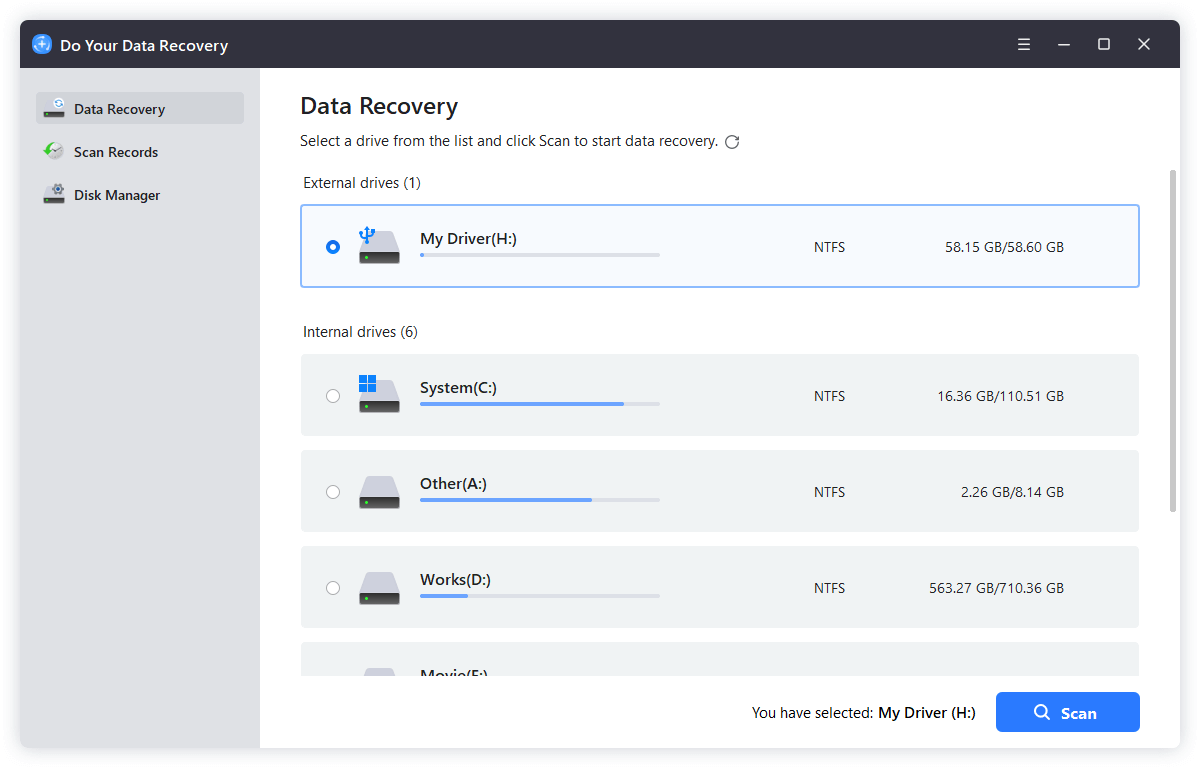
While Do Your Data Recovery offers a paid version, its free version provides robust features for photo recovery. It's a versatile tool that can recover various types of files from multiple storage devices.
Features:

Recuva is a popular and user-friendly freeware tool developed by Piriform. It's known for its efficiency in recovering deleted files from various storage devices, including memory cards.
Features:
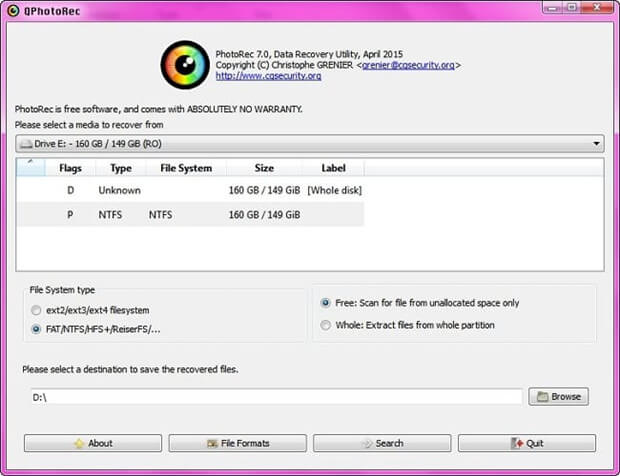
PhotoRec is another powerful freeware tool, part of the TestDisk suite. It's designed to recover lost files from a wide range of devices, including memory cards.
Features:
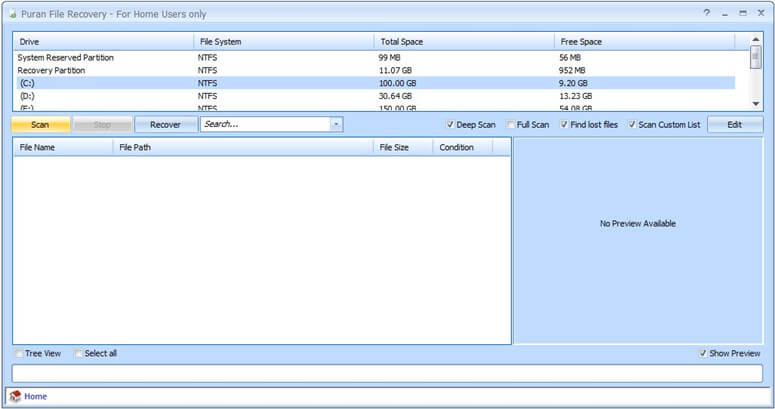
Puran File Recovery is another effective freeware tool for recovering lost photos. It's known for its ability to recover files from formatted or corrupted drives.
Features:
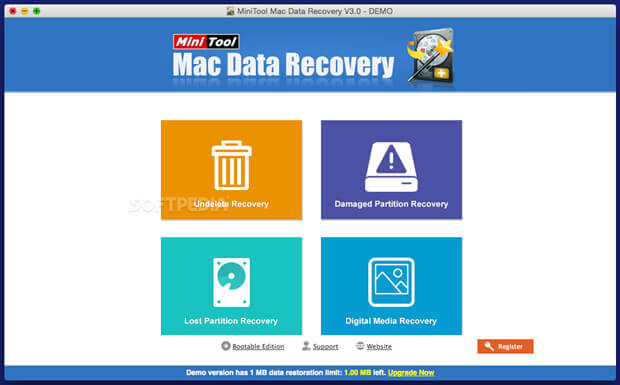
MiniTool Power Data Recovery is another freeware option that provides comprehensive data recovery features. It's especially useful for recovering lost photos from memory cards.
Features:
After losing files from memory card, you can first download the data recovery software and install it on your computer. Here we recommend the most reliable data recovery software for memory card - Do Your Data Recovery Free.
The software is professional at data recovery for memory card and many other type of storage devices. What's more, the software is very simple with understandable interface. Any user can easily handle it to recover lost photos from memory card.
To help you understand the software clearly and run the data recovery smoothly, here you can follow the detail tutorials:
Step 1. Connect the memory card to your computer with a proper card reader. Run the software and it will recognize the memory card and other drives connected to the computer. Select the memory card from the device list in the software.

Step 2. Click the Scan button and the software will start to scan the memory card deeply. The software will search each sector on the memory card to find any possible lost photos or other files.
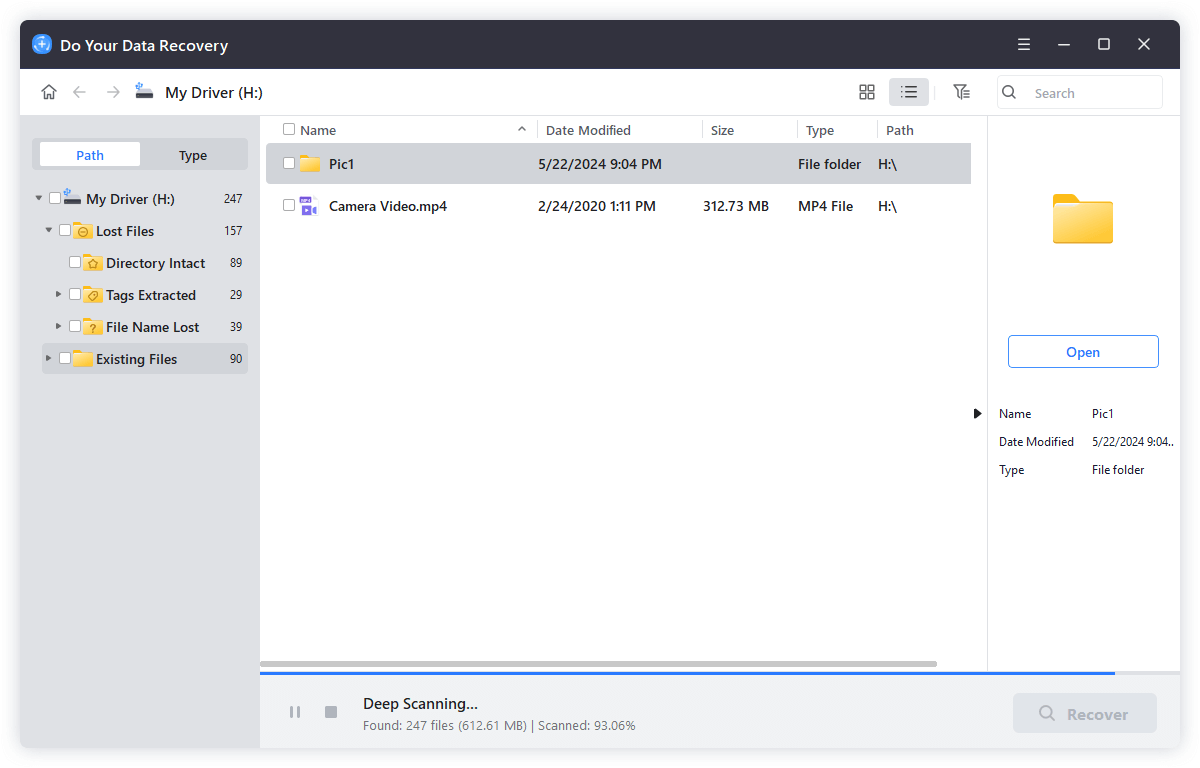
Step 3. After the scan is done, the software will show you all the files found from the memory card. You can locate the wanted photos by types. And you can preview the photos to verify if they are recoverable.

Step 4. Once you confirm that all the wanted photos are selected, just click the Recover button and then save the photos to your computer or any other drive. Don't recover back to the original memory card where you lost the photos, otherwise, it would cause damage to the data and recovery failure.
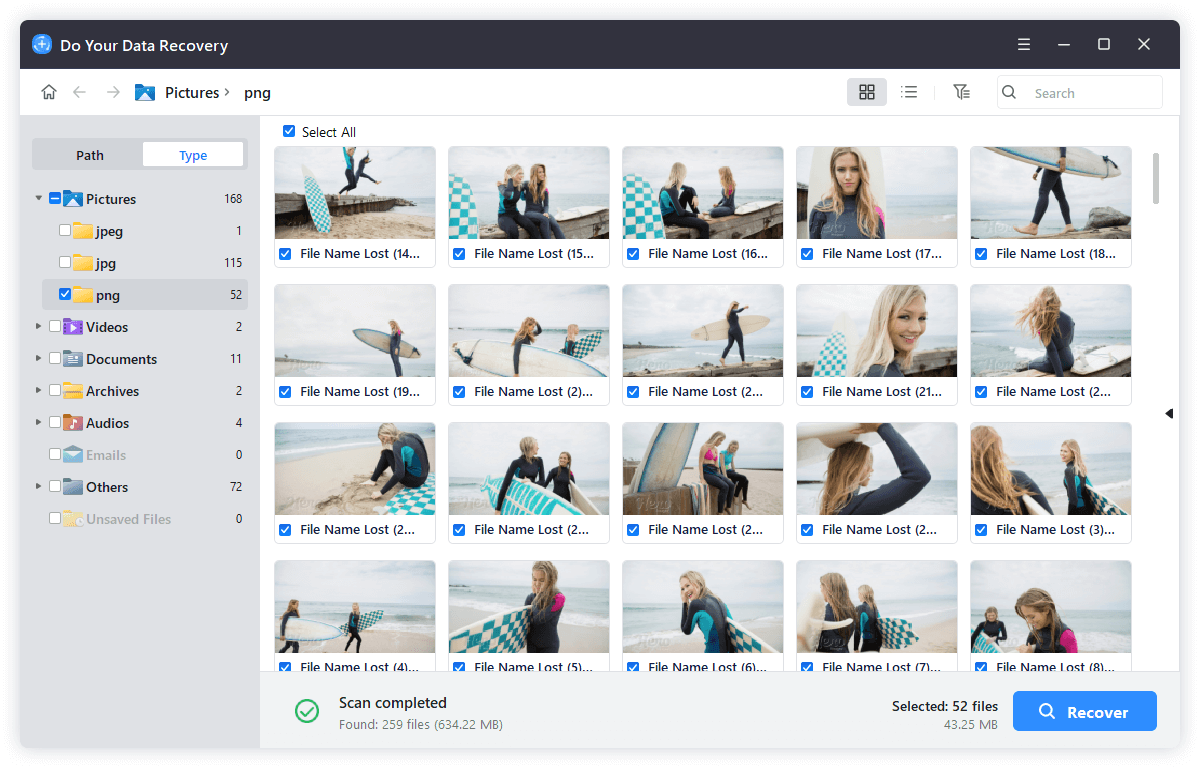
Recovering lost photos can be a delicate process. To maximize your chances of success, follow these tips:
1. Stop Using the Memory Card
Stop using the memory card as soon as you notice that pictures are gone. Recovering deleted files may become unfeasible if usage persists.
2. Use a Card Reader
If possible, use a card reader instead of connecting the camera directly to the computer. This reduces the risk of data corruption during the recovery process.
3. Avoid Formatting the Card
If you suspect that your photos are lost, avoid formatting the memory card. Formatting may further complicate the recovery process.
4. Be Patient
Recovery software can take time, especially if you're performing a deep scan. Be patient and allow the software to complete its process to ensure you recover as many files as possible.
5. Use Multiple Tools
If one recovery tool doesn't yield the desired results, try another. Different tools use various algorithms, so one might succeed where another fails.
While recovery tools are invaluable, preventing data loss in the first place is always the best strategy. Here are some tips to help you safeguard your photos:
1. Regular Backups
Make it a habit to back up your photos regularly. You can use cloud storage services, external hard drives, or other storage solutions to ensure your photos are safe.
2. Handle Memory Cards with Care
Avoid removing the memory card from your camera while it's still writing data. Always eject the card safely from your computer to prevent file system errors.
3. Use Quality Memory Cards
Purchase memory cards of superior quality from reliable manufacturers. Cheaper alternatives may be more prone to corruption and physical damage.
4. Keep Your Devices Updated
Ensure your camera and computer software are up-to-date. Updates often include bug fixes and improvements that can prevent data loss.
5. Scan for Viruses
Regularly scan your memory cards and computer for viruses and malware. Malicious software can corrupt files and lead to photo loss.
Losing photos from a memory card can be a disheartening experience, but with the right tools and knowledge, recovery is often possible. Freeware tools like Do Your Data Recovery, Recuva, PhotoRec, Puran File Recovery, and MiniTool Power Data Recovery offer powerful solutions for retrieving lost photos. By following the steps outlined in this article, you can increase your chances of a successful recovery.
Remember to act quickly, handle your memory card with care, and, most importantly, back up your photos regularly to avoid future loss. With these precautions and tools at your disposal, you can confidently recover your precious memories and safeguard them for the future.
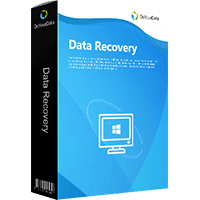
Do Your Data Recovery
The safe, powerful and easy-to-use data recovery program to help you recover deleted, formatted or lost data, recover lost data from damaged hard drive, from HDD, SSD, USB flash drive, memory card, digital camera, etc, fix damaged drive and external devices.
